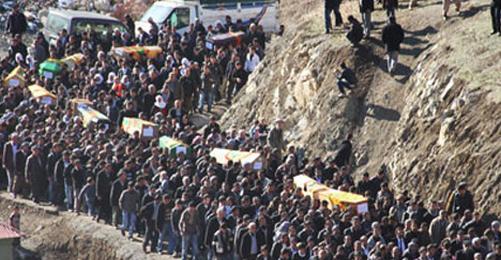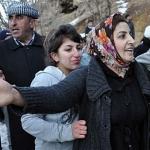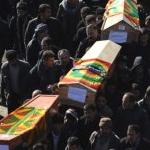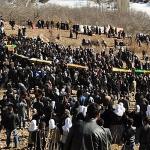Investigation about Uludere Survivors

Davut, Servet and Hacı Encü survived the bombing of Uludere in the south-eastern Kurdish-majority province of Şırnak on 28 December. 34 villagers died in the course of the military strike. The three survivors of the Encü family have now been called to the Gülyazı Regiment Command to give their statements.
As reported by Taraf newspaper, the survivors face charges of "opposing the passport law", "illegal violation of the border" and "cross-border smuggling".
Davut Encü was called by the Gülyazı Regiment Command. He recalled, "They wanted us to come to the command within 24 hours. They indicated that we would be taken their by force by the military in case we would not appear to give our statements within the given time".
34 people from the villages of Gülyazı and Ortasu were killed in the course of the bombing by warplanes on 28 December 2011. Only a preliminary investigation was carried out related to the death of the people. Statements of their relatives and of the survivors were taken.
The prosecutor's office in charge of the investigation requested the four hours of footage taken by the Heron aerial vehicles before the incident from the General Staff Presidency. The images have not been sent yet.
In the meantime, five people attacked the District Governor of Uludere during a condolence visit. A probe into this incident was completed quickly and the five people were arrested, among them also relatives of the killed villagers.
"No other source of income"
Ortasu Village Headman Haşim Encü confirmed in an interview with bianet that villagers were summoned to give their statements related to smuggling. Haşim Encü had previously explained the reason why the villagers were into smuggling:
"If these people had another income source, they would not risk their lives for TL 60 [€24] anyways. The village comprises 140 households. The members of 40 families work as village guards. The salary of a village guard is TL 800 [€320]. After retirement, this salary is reduced by about half".
"Every family has at least ten members and they are not able to get by on that money. There is no trade in the village, no civil services. There is no other income source than smuggling. The environment is not suitable for livestock breeding. Smuggling is urged by necessity".
"Is smuggling driven by poverty?"
Prof Neşe Özgen described in her article "The Story of Smuggling and the Border" published on bianet what smuggling meant for the region also taking into account the historical background.
Özgen questioned, "Is smuggling really the main and only income source in all villages and towns at the border? Before the border was drawn, Kurds carried goods on their back in a small scale. Did all Kurds turn that into smuggling after the border was drawn? Do the smugglers really smuggle because they cannot find any other work and by reason of poverty?"
"Are they really all relatives in the border villages and are these family-clan relations the basis of smuggling? Are the smuggling Kurds terrorists and enemies of the state? What are they smuggling - alcohol, weapons, drugs, petrol derivatives, people, electronic goods, perfume?"
"When you start talking about the border and smuggling, you can actually talk about the whole state, politics, homeland and citizenship too". (AS/VK)







